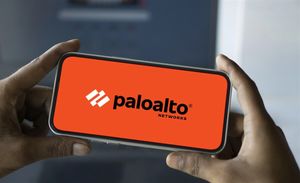Medications for managing opioid use disorder can safely and effectively support treatment
(BPT) - By Allison Arwady MD, MPH, Director, National Center for Injury Prevention and Control
Research shows that medications can help people with an opioid use disorder recover, greatly lowering the risk of overdose and death.
Only a quarter of adults in need of treatment for opioid use disorder (OUD) receive medications to support their recovery. For those struggling with substance use disorder, there is hope for recovery. Medications for opioid use disorder (MOUD) help lower the risk of overdose and support long-term recovery.
Despite evidence for the benefits of MOUD, it is underused. In 2022, almost 1 in 3 adults (30%) who needed treatment for an OUD received treatment without medication.
In 2023, more than 80,000 opioid-involved overdose deaths were reported in the United States, and people aren't always getting the treatment they need:
- An estimated 9.4 million Americans needed OUD treatment in 2023.
- Almost half (43%) of the Americans who needed OUD treatment didn't think they needed it.
- Among those who received OUD treatment, there were more than twice as many adults ages 35-49 that received MOUD compared to those ages 18-25 and those ages 50+.
MOUD Supports Recovery
Buprenorphine, methadone, and naltrexone are FDA-approved to treat OUD. MOUD can reduce cravings and withdrawal symptoms or even blunt or block the effects of opioids. In addition to treating OUD and helping to reduce overdose risk, MOUD can also aid in sustaining recovery long term.
Stigma and Treatment Beliefs
Despite strong evidence supporting the efficacy of MOUD, several factors have been cited as reasons MOUD is sometimes not included as part of standard treatment plans. The barriers may stem from stigma, treatment beliefs, and access issues. Some factors include stigmatizing beliefs that a person is choosing not to change their behavior and treatment beliefs that can limit access to MOUD despite strong recommendations for their use. Some clinicians prefer an approach that does not include medications, and some hold beliefs equating MOUD with illegal substance use. This may be due to misconceptions about how the medications work. Understanding OUD as a medical disease can help to dispel these myths, potentially leading to increased use of MOUD as a valuable tool for OUD treatment and recovery.
Treating OUD like a Chronic Disease
MOUD is an important first step in treating and recovering from OUD. We now know that OUD is a long-term medical condition, like heart disease or diabetes, that needs to be managed over time. Just like those conditions, OUD can be treated, and medications are a key part of that treatment. It is safe to stay on MOUD for many years, even for life.
While MOUD is the key first step in treatment, mental health services and other supports are also very important for recovery. These services can help people focus on their long-term health and happiness by improving things like diet, exercise, and sleep, and by helping them with other important parts of life, like building strong relationships and finding satisfying work.
It is critical for Americans who are struggling with OUD to have access to OUD treatment options to support their recovery. Our communities can work together to make sure that people can stay in recovery, living happier, healthier lives.
Everyone can play a part in reducing overdose deaths. If you or someone you know may be struggling, don't hesitate to reach out. Talk to friends, family members, or a healthcare professional and get the support you need. No one should suffer in silence.
If you or someone close to you needs help for a substance use disorder, talk to your doctor or call SAMHSA's National Helpline at 1-800-662-HELP or go to SAMHSA's Behavioral Health Treatment Services.
Additional resources:
- Local health centers for substance abuse
- Opioid Treatment Program Directory
- Decisions in Recovery: Treatment for Opioid Use Disorder (Handbook)
If you have questions about any medicines, drugs or suspected/known poisonings call the Poison Help Line at 1-800-222-1222.
To learn more about CDC's Division of Overdose Prevention, visit:
More News
View MoreRecent Quotes
View More
Quotes delayed at least 20 minutes.
By accessing this page, you agree to the Privacy Policy and Terms Of Service.




